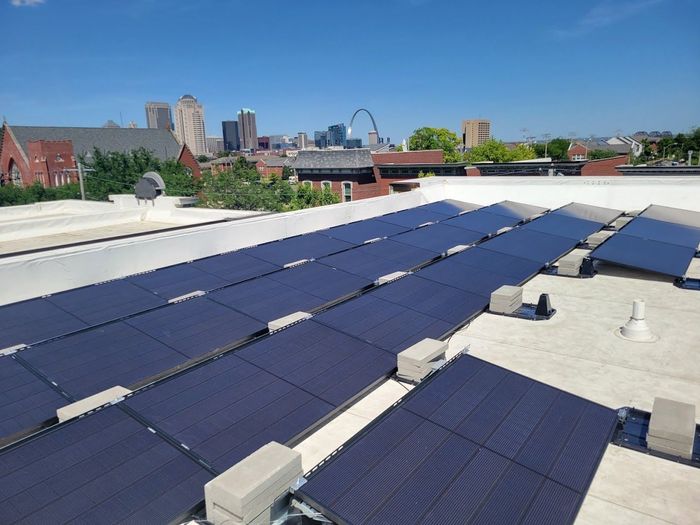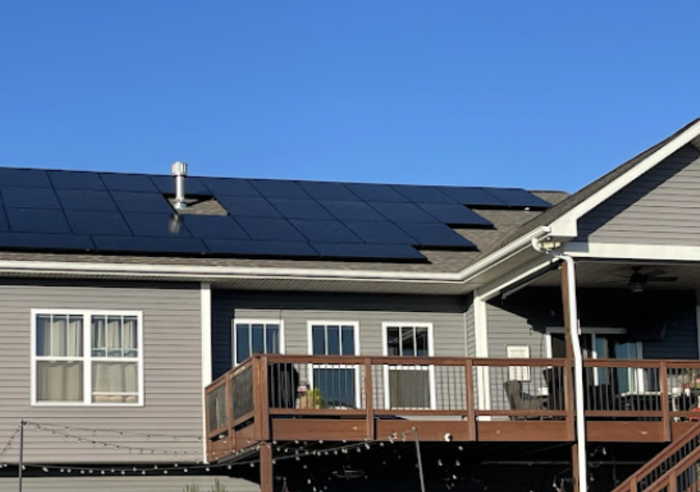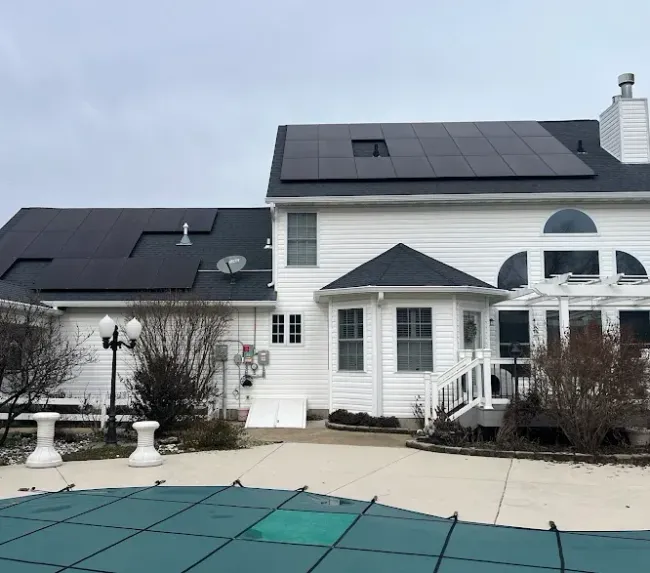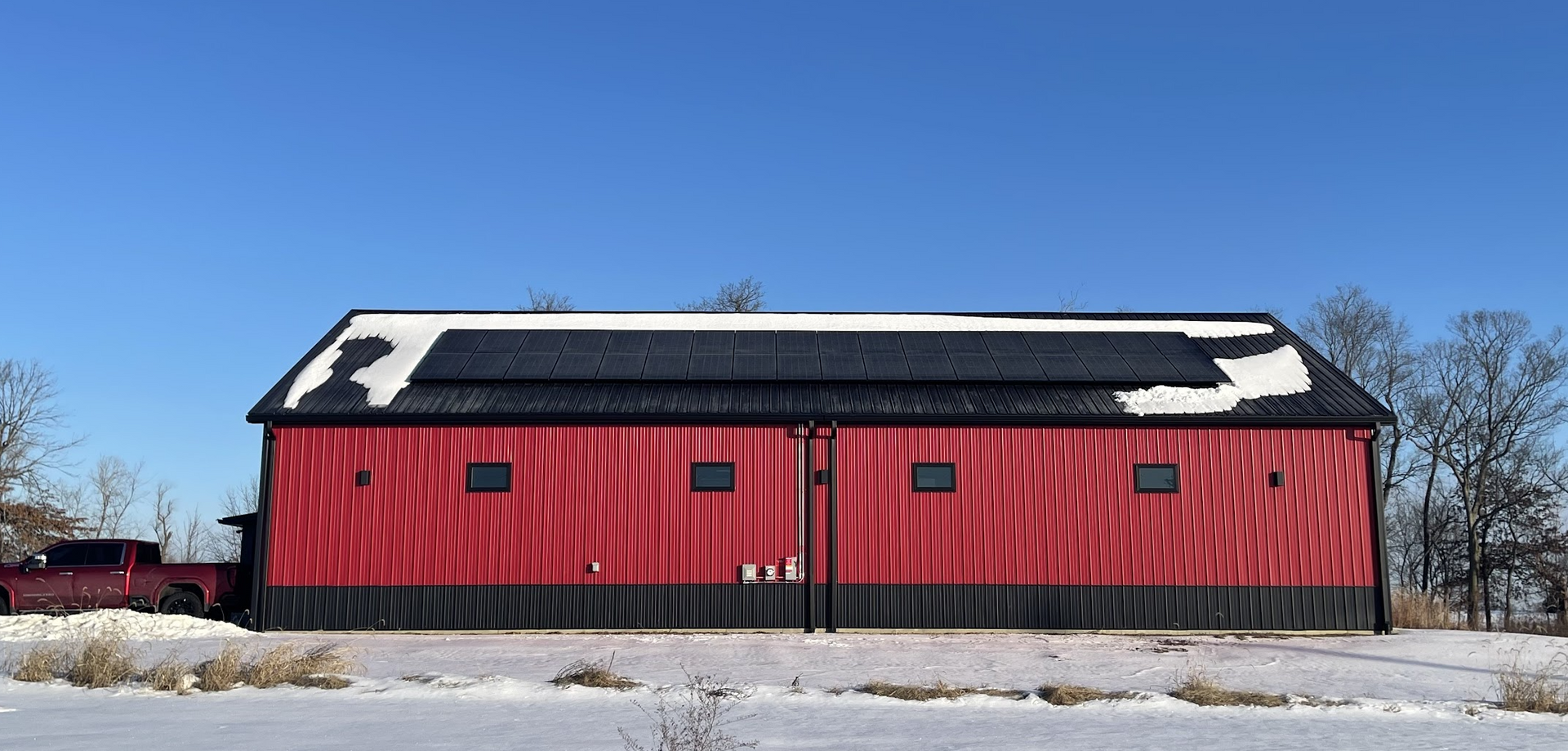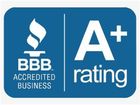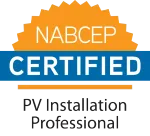By Jack Casey
•
December 3, 2025
The headlines are clear: Solar energy is now the most impactful and affordable source of electricity in human history. The latest proof? Vatican City, one of the smallest and most historic sovereign states, has achieved the remarkable feat of being powered 100 percent by solar energy . But it's not the monumental architecture of St. Peter's Basilica that's covered in panels—it’s the innovative use of agrivoltaics in nearby fields. This news highlights a core truth about solar power: it is a flexible, dual-purpose investment that optimizes land and generates guaranteed returns. This same principle of optimization and undeniable return is why solar is the best solar energy solution for homeowners and businesses across the Midwest. The Global Blueprint: Why Solar is the Ultimate Win-Win The Vatican’s success hinged on the concept of agrivoltaics—combining agriculture with solar photovoltaic technology on the same land. This is a brilliant strategy for several reasons: Microclimate Creation: The solar panels create a beneficial microclimate underneath, which conserves water, protects crops from harsh sun and hail, and keeps temperatures cooler. The result? Increased crop yields and clean electricity. Dual Revenue Stream: Farmers get income from both their crops and the solar generation, cementing the benefits of going solar for businesses and landowners alike. Massive Potential: As the Vatican demonstrated, very little land is actually needed to power entire regions. Less than 1% of Canada's farmland, for example, could power its entire grid using this method. This commitment to smart, efficient power generation is the global trend. The cost analysis of solar installations has made the technology the cheapest source of bulk electricity, making the switch an economic imperative for everyone, from world governments to Midwest homeowners. Solar Savings: The Best Investment for Midwest Homeowners While you likely won't be growing Riesling grapes under your panels in St. Charles, Missouri, the core benefits of solar—savings, resilience, and predictability—apply directly to your home. 1. Drastically Maximize Savings and Predictable Bills For Midwest families, utility bills fluctuate wildly. During the summer, AC usage spikes. In the winter, heating costs soar. Financial Security: Installing a custom solar array eliminates the volatility of rising utility rates. Homeowners can save hundreds, or even thousands, annually on their electricity bills. Winter Efficiency: Contrary to popular belief, solar panels are actually more efficient in colder temperatures because the PV material converts sunlight better without extreme heat. With net metering programs in Missouri and Illinois, the surplus energy you generate in the long summer days is credited, helping offset your reliance on the grid during short winter months. Maximizing Returns: We provide a comprehensive cost analysis of solar installations tailored to your home, demonstrating exactly how to maximize savings with solar panels and achieve a rapid Return on Investment (ROI). 2. Local Incentives That Make Solar Highly Affordable The true cost analysis of solar installations must factor in state and local incentives that drastically reduce your upfront cost. Missouri Incentives: Homeowners benefit from property tax exemptions (solar systems are not assessed for increased property tax value) and utility net metering programs that provide credits for excess energy sent back to the grid. Illinois Incentives (The Gold Standard): Illinois residents have access to powerful Solar Renewable Energy Credits (SRECs) through the "Illinois Shines" program, which provides performance-based payments for the clean energy your system generates. This revenue stream often makes the cost analysis of solar installations in Illinois among the best in the country. Financing: A comparative analysis of financing options for solar systems shows that modern solar loans, designed specifically for solar investments, often result in monthly loan payments that are lower than the average utility bill they replace—allowing you to save money from day one. 3. The Crucial Role of Your Roof and System Quality The longevity and performance of your system depend entirely on its foundation. Foundation First: The impact of roof condition on solar system performance is immense. A weak or old roof must be replaced before installation to prevent expensive removal and reinstallation down the line. A new roof ensures a secure platform for the solar panel mounting systems . Bundled Expertise: SunSent Solar provides the comprehensive benefits of bundled solar and roofing services . As both a leading Midwest Roofing Contractor and solar panel supplier , we guarantee the structural integrity of your roof before the panels go on, simplifying warranties and ensuring maximum performance. Guaranteed Quality: We only use high-efficiency equipment and provide clear guidelines for evaluating solar panel efficiency , ensuring you get the most power per square foot of roof space. We back this with a detailed understanding solar warranties and guarantees , giving you peace of mind for decades. The SunSent Advantage: Your Go-To for the Midwest The global shift to solar is not just for countries and vineyards; it’s for homeowners who want stability, savings, and security. SunSent Solar specializes in delivering the best solar energy solutions for homeowners and in realizing the full benefits of going solar for businesses across Missouri and Illinois. We combine local expertise with industry-leading technology to ensure your investment is optimized for Midwest weather and local utility programs. Don't let the complexity of installation or incentives hold you back. Let us put the power of agrivoltaics' dual-benefit concept to work for your home—turning your roof into a clean, profitable source of energy. FAQ: Solar System Investment & Security Q: What factors most affect the final cost of my solar installation? A: The final cost analysis of solar installations is mainly driven by system size (based on your energy usage) and roof complexity (pitch, material, and shading). Equipment choice (premium high-efficiency panels versus standard) and the inclusion of a battery backup also significantly influence the total residential solar panel cost . Q: How does the condition of my roof affect my solar system? A: The impact of roof condition on solar system performance is critical. If your roof is nearing the end of its life (under 10-15 years remaining), it should be replaced before installation. This avoids the expensive process of removing and reinstalling panels just to fix the roof later. SunSent Solar specializes in comprehensive benefits of bundled solar and roofing services to ensure your roof is ready. Q: What types of financing are available for solar systems? A: Our comparative analysis of financing options for solar systems includes direct cash purchase, solar loans (where monthly payments are often less than your old electric bill), and Power Purchase Agreements (PPAs). We can walk you through the options to find the best fit for your budget. Q: Are there still local incentives available for Missouri residents? A: Yes. While state incentives vary, Missouri residents benefit from powerful net metering laws and local tax incentives for solar installation in Missouri , such as property tax exemptions for the added value of the solar system. We ensure you capitalize on every available saving. Q: What should I look for when evaluating solar panel efficiency? A: Guidelines for evaluating solar panel efficiency focus on the panel's efficiency rating (how much sunlight it converts to electricity) and its temperature coefficient (how much performance drops in hot weather). Higher-efficiency panels require less roof space to hit your energy goal. We only work with top-tier solar panel supplier brands to ensure high efficiency and durability. Ready to start saving thousands? Contact SunSent Solar today for a FREE, personalized quote and complete cost analysis. Let us show you why we are the Midwest's go-to expert for solar and roofing solutions!
